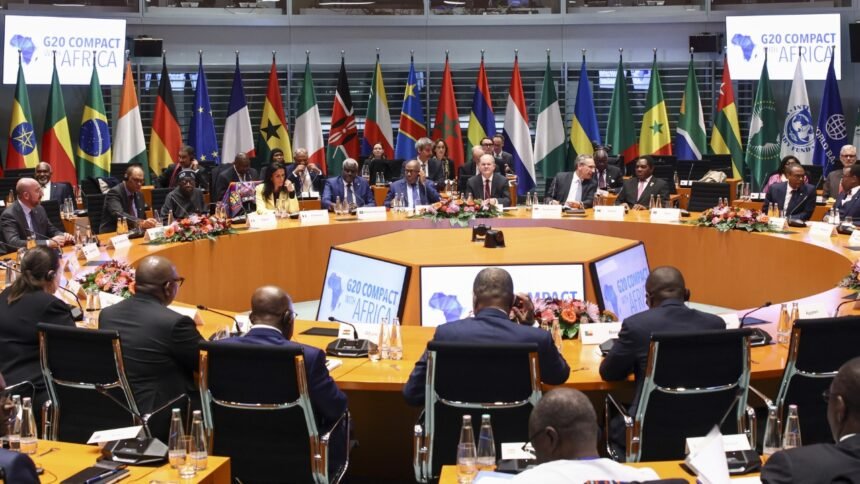The Democratic Party views on foreign issues have long shaped the United States’ approach to international relations. For decades, Democrats have emphasized diplomacy, multilateral cooperation, and the promotion of human rights abroad. Unlike more unilateral approaches sometimes favored by other political factions, Democratic policies often advocate for engagement with international institutions, collaboration with allies, and measured responses to global crises. Understanding these views is critical for Americans seeking to grasp how their country navigates complex global challenges, from trade negotiations and climate policy to security alliances and humanitarian interventions.
Historical Context of Democratic Foreign Policy
The Democratic Party’s stance on foreign issues has evolved throughout history. During the mid-20th century, Democrats championed the establishment of institutions like the United Nations, aiming to prevent conflicts similar to World War II. Presidents like Franklin D. Roosevelt and Harry S. Truman emphasized collective security, economic reconstruction, and the promotion of democracy abroad. Later, in the Cold War era, Democratic administrations generally favored strategic alliances, arms control agreements, and multilateral diplomacy as tools to counter Soviet influence. This historical context demonstrates a consistent preference for engagement and collaboration over isolationism.
According to Dr. Anne-Marie Slaughter, a prominent foreign policy analyst, “Democratic foreign policy traditionally balances American leadership with international cooperation, emphasizing rules-based order rather than unilateral action” [1]. This perspective underscores how Democratic strategies aim to align U.S. national interests with global stability.
Key Principles of Democratic Foreign Policy
The Democratic Party views on foreign issues are shaped by several key principles. First, diplomacy is prioritized as the primary tool for conflict resolution. Instead of immediately resorting to military interventions, Democratic administrations often seek negotiation, alliances, and international mediation to address disputes. This principle is evident in policies ranging from the Iran nuclear deal negotiations to efforts to mediate conflicts in regions like the Middle East.
Second, human rights and democracy promotion play a central role. Democrats frequently advocate for policies that support civil liberties, gender equality, and the rule of law abroad. While critics sometimes question the effectiveness of such approaches, they remain central to Democratic ideology in foreign policy decision-making.
Third, multilateralism is a cornerstone of Democratic approaches. By engaging in global institutions such as the United Nations, NATO, and the World Health Organization, Democratic leaders seek to leverage collective action to tackle global challenges. Whether addressing climate change, pandemics, or economic instability, collaboration is preferred over unilateral moves.
Democratic Approaches to Security and Defense
National security is another area where Democratic perspectives on foreign issues are distinctive. Democrats generally support a strong yet measured military, emphasizing defense readiness and strategic alliances over aggressive interventions. For instance, Democratic administrations often work closely with NATO allies to ensure collective security while also prioritizing diplomatic channels for conflict resolution.
Additionally, Democrats advocate for modernizing the military to address emerging threats, including cyber warfare, terrorism, and geopolitical challenges in Asia. While willing to use force when necessary, Democratic strategies typically integrate military action within broader diplomatic and humanitarian objectives. This approach reflects a belief that sustainable peace requires both strength and negotiation.
Trade and Economic Policy in Global Context
Trade policies are another arena where Democratic Party views on foreign issues are clearly defined. Democrats generally support fair trade practices that protect American workers while fostering global economic cooperation. Unlike purely protectionist approaches, Democratic trade strategies often involve negotiating agreements that address labor rights, environmental standards, and corporate accountability.
For example, the Democratic approach to trade agreements such as the USMCA (United States-Mexico-Canada Agreement) emphasizes balanced economic growth and adherence to labor standards. Democrats also advocate for using economic tools, including sanctions and aid, to encourage policy compliance and human rights observance in other nations.
Environmental and Climate Diplomacy
Global environmental policy has emerged as a defining component of Democratic foreign policy. Climate change is increasingly recognized as a national security and humanitarian issue, and Democrats often champion international agreements such as the Paris Climate Accord. By committing to emissions reduction targets and promoting clean energy investments abroad, Democrats demonstrate a commitment to global sustainability.
Furthermore, environmental diplomacy reflects the party’s broader values of multilateralism and collaboration. Addressing climate change requires global cooperation, and Democratic leaders view international partnerships as essential for effective environmental solutions. This approach positions the U.S. as a proactive participant in mitigating one of the most pressing global challenges of the 21st century.
Humanitarian and Development Policies
The Democratic Party also emphasizes humanitarian aid and development programs as instruments of foreign policy. Foreign assistance is often directed toward improving education, healthcare, and infrastructure in developing nations. By fostering stability and economic opportunity abroad, Democrats argue that such efforts reduce the likelihood of conflict and extremism while promoting global prosperity.
Programs like the U.S. Agency for International Development (USAID) often receive strong support from Democratic administrations. Aid is frequently combined with diplomatic initiatives to address crises such as natural disasters, pandemics, and political instability. Through this holistic approach, the Democratic Party integrates values, diplomacy, and practical interventions into its foreign policy framework.
Democratic Policy Toward Key Regions
The Democratic Party views on foreign issues also manifest differently across global regions. In Europe, Democrats maintain strong ties with NATO and support collective defense. In Asia, Democratic strategies focus on balancing relations with China while strengthening alliances with Japan, South Korea, and India. The Middle East often presents complex challenges, including conflict resolution, counterterrorism, and energy security. Democrats generally favor diplomatic engagement, multilateral negotiations, and selective security cooperation in the region.
In Africa and Latin America, Democratic policies prioritize development, human rights, and democratic governance. These regional approaches reflect a consistent emphasis on combining diplomacy, aid, and multilateral engagement to advance U.S. interests and global stability.
Challenges and Criticisms
Despite its comprehensive approach, the Democratic Party faces criticism regarding foreign policy execution. Critics argue that Democratic strategies may be too idealistic, potentially delaying decisive action in urgent crises. Others contend that promoting human rights abroad can sometimes conflict with strategic interests, creating diplomatic tension. Moreover, balancing domestic priorities with international commitments often proves politically challenging.
Nevertheless, Democratic administrations tend to justify these approaches by emphasizing long-term stability, alliance-building, and the moral obligations of the United States as a global leader. The party maintains that thoughtful, measured, and cooperative foreign policy ultimately strengthens both national security and international standing.
Conclusion
In summary, the Democratic Party views on foreign issues reflect a commitment to diplomacy, multilateralism, human rights, and sustainable development. From historical foundations in post-World War II reconstruction to contemporary strategies addressing climate change, trade, and security, Democratic policies prioritize engagement and cooperation. While challenges remain, this approach underscores the party’s belief in the power of alliances, collective action, and principled leadership. For Americans seeking to understand how their nation interacts with the world, these principles provide a clear framework for the Democratic vision of international relations.
you may also like
kevin costner political views 2024: A detailed Analysis of the Actor and his Influence






